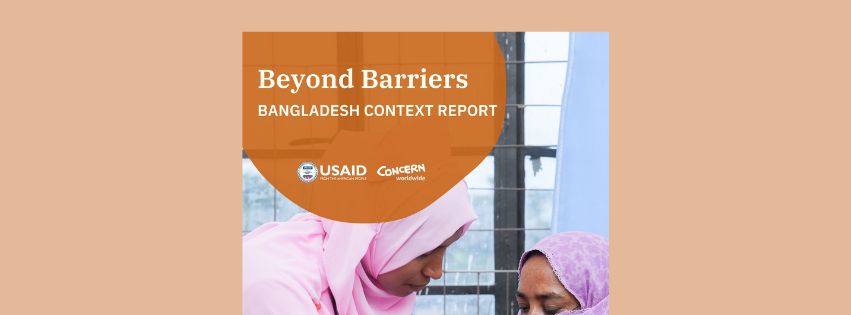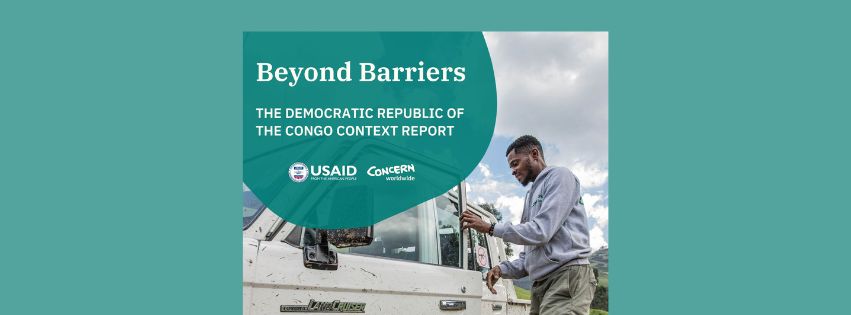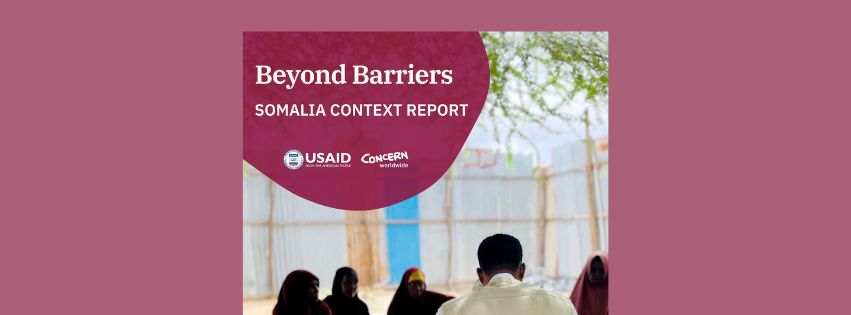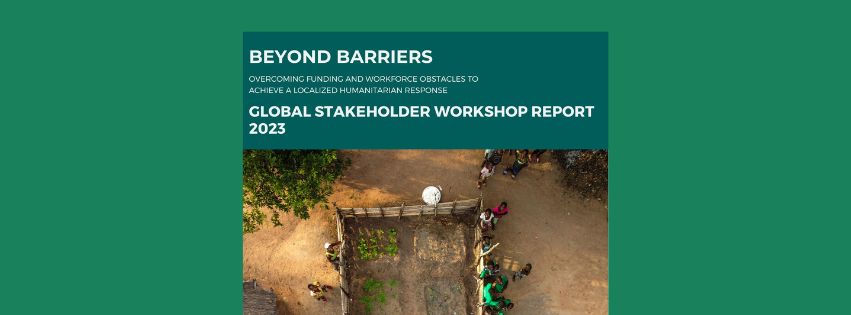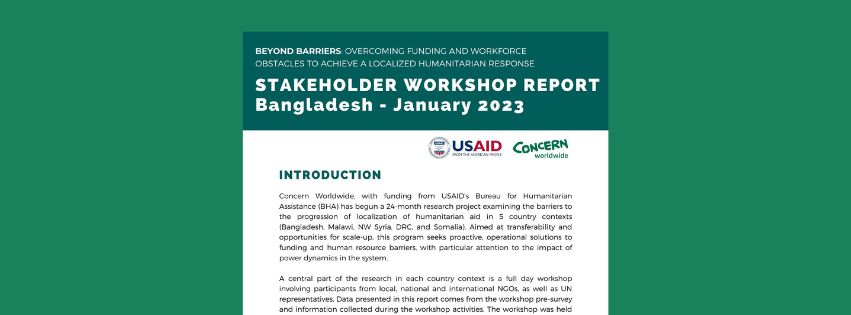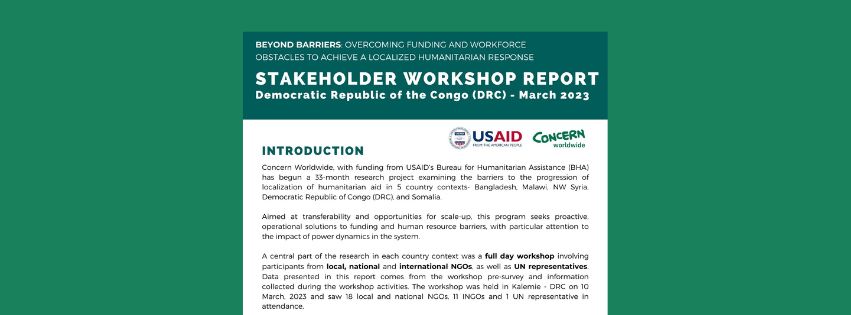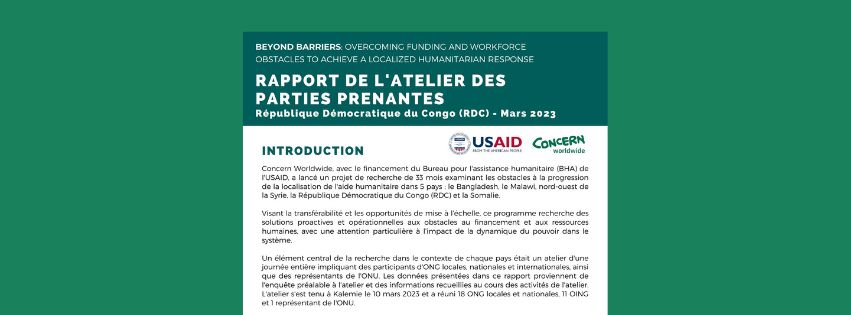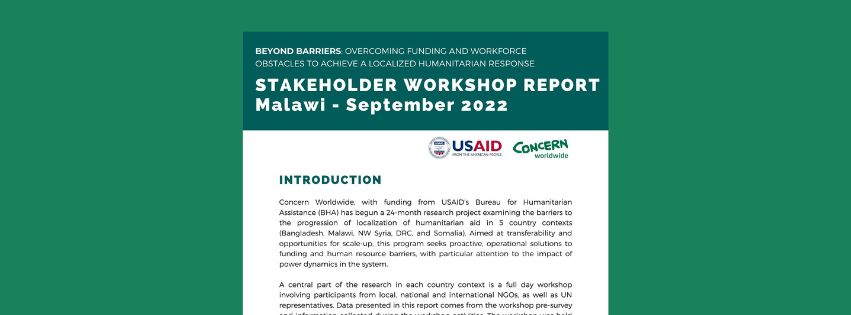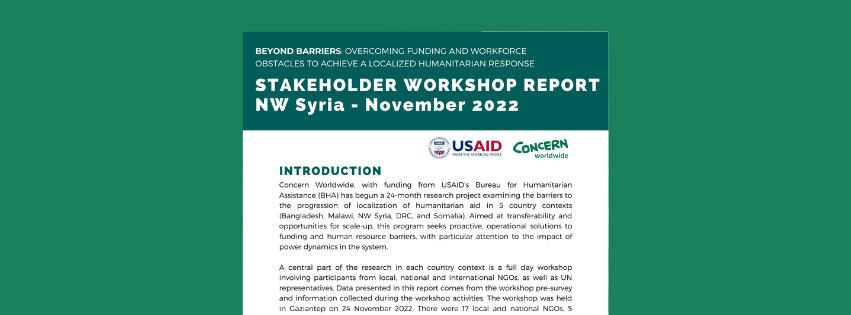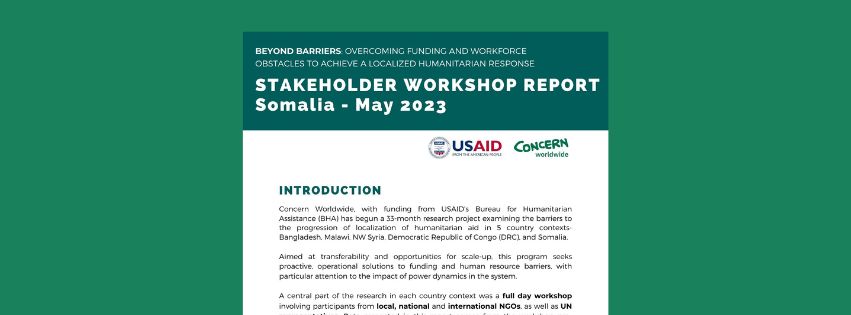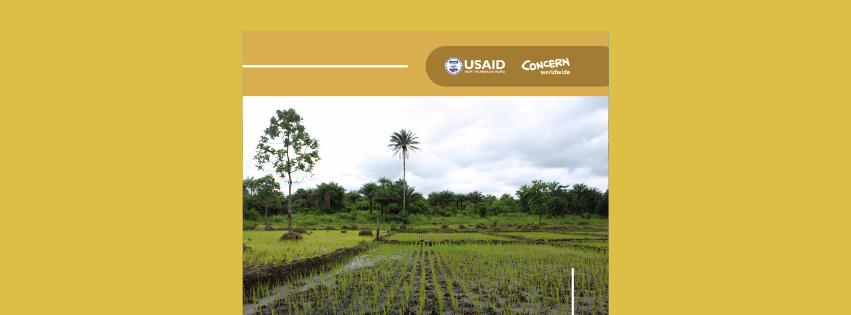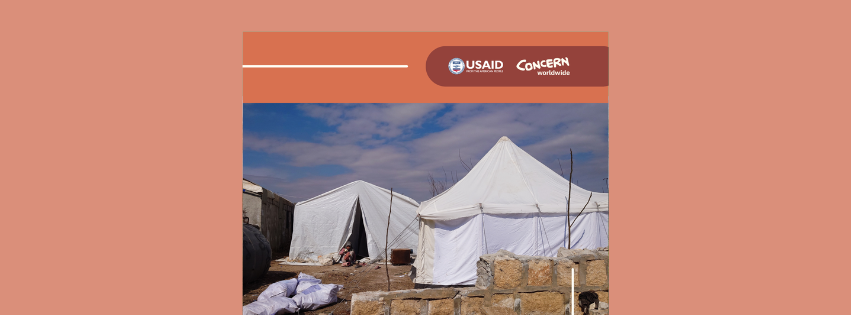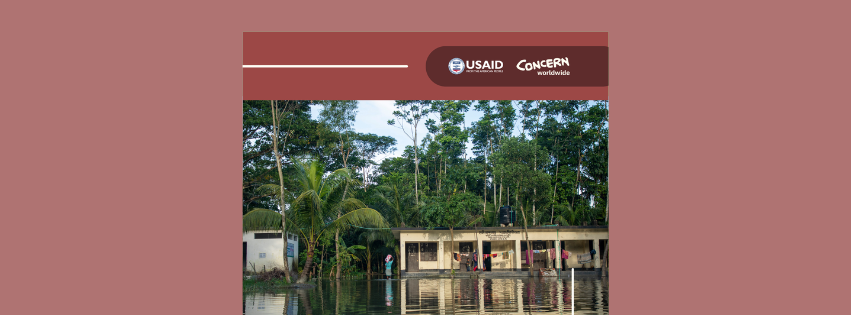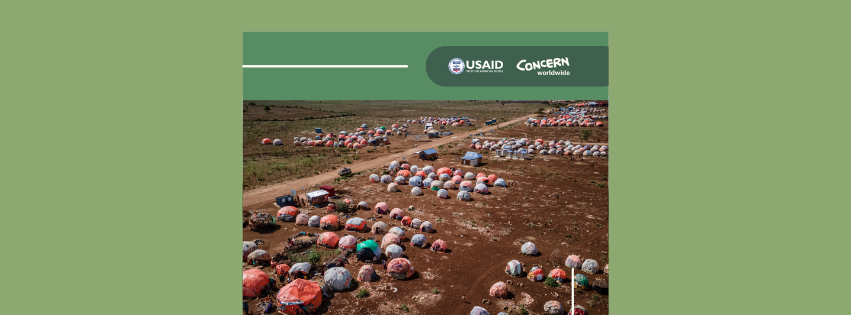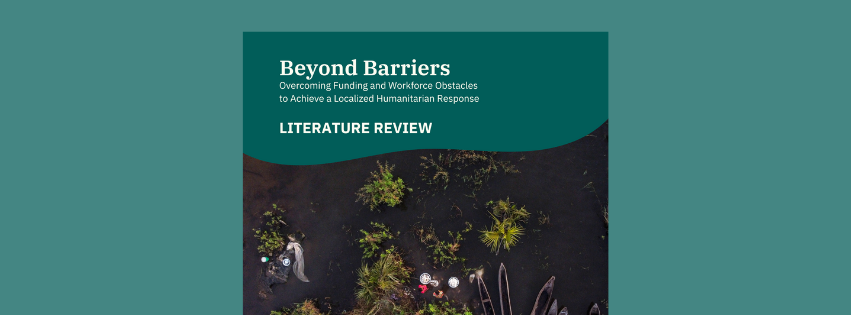Research Findings
The Beyond Barriers project covered five contexts - Bangladesh, DRC, Malawi, NW Syria, and Somalia - and utilized a mixed methods approach to data collection, including stakeholder workshops, key informant interviews, focus group discussions, and a global localization survey. These investigations were co-designed and implemented jointly with local research partners to ensure context specificity and local relevance. Stakeholders included in the study ranged from the most local – affected communities, local government, local NGOs – to the top decision-makers globally. The project in its entirety has conducted conversations and built an expansive body of evidence including:
- 5 stakeholder workshops with 172 participants
- 293 key informant interviews
- 23 focus groups with community members and community-based organizations
- 811 respondents to the Global Localization Survey
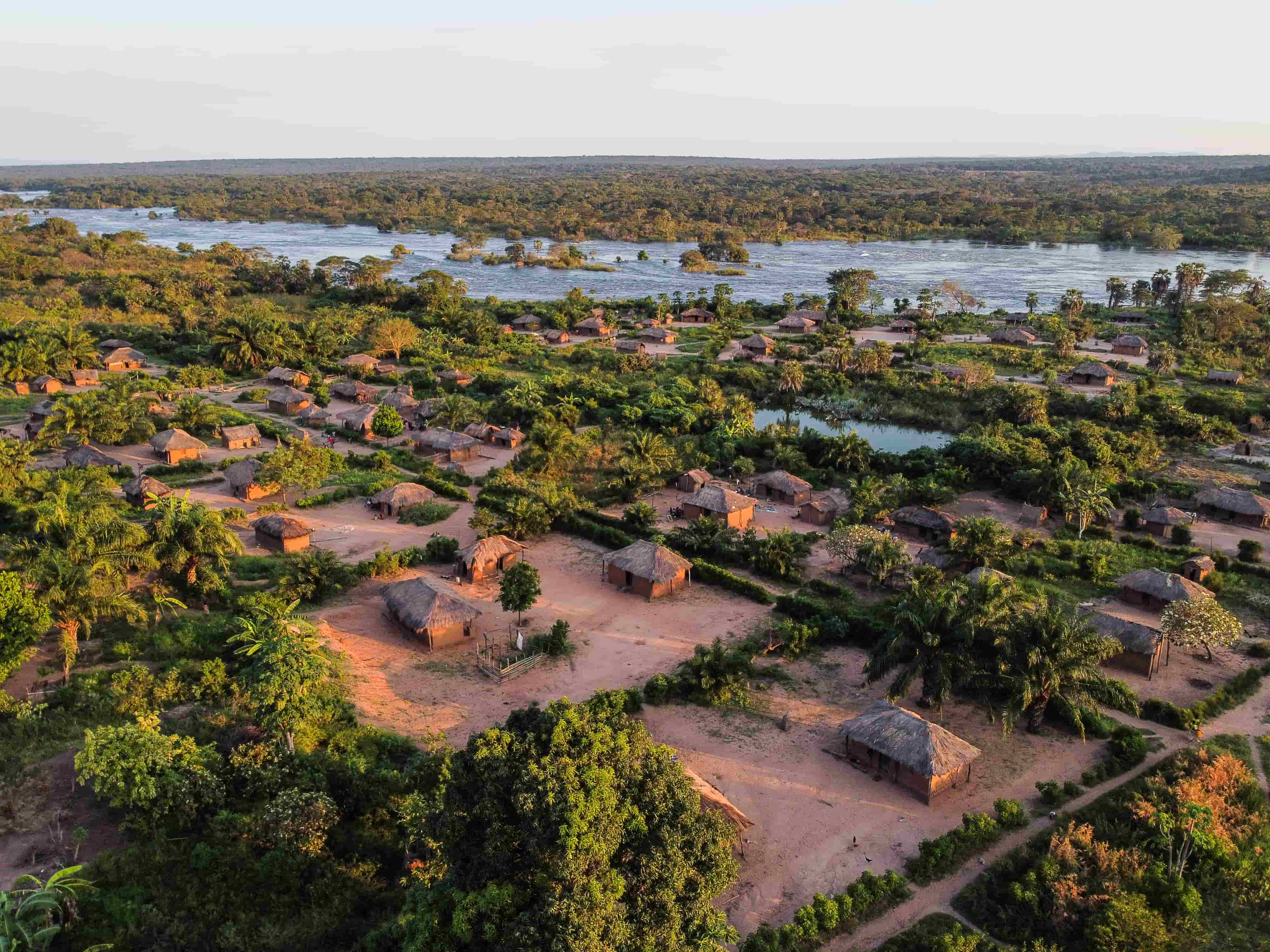
Context Reports
Research visits were conducted in each of the five countries in collaboration with the project’s research partners with extensive data collected across stakeholder workshops, key informant interviews, and focus group discussions. The Context Reports outline key research findings in each of the of the countries under the following thematic areas: Power in Partnership, Funding, and Human Resources.
Stakeholder Workshop Reports
A central part of the research in each study context was a one-day stakeholder workshop that convened actors from local, national and international NGOs, as well as UN representatives. Data presented in this report comes from the workshop pre-survey and data collected during the workshop sessions.
Case Studies
A collection of success stories that detail the tangible progress of locally-led humanitarian responses across the five study contexts.
Global Localization Survey
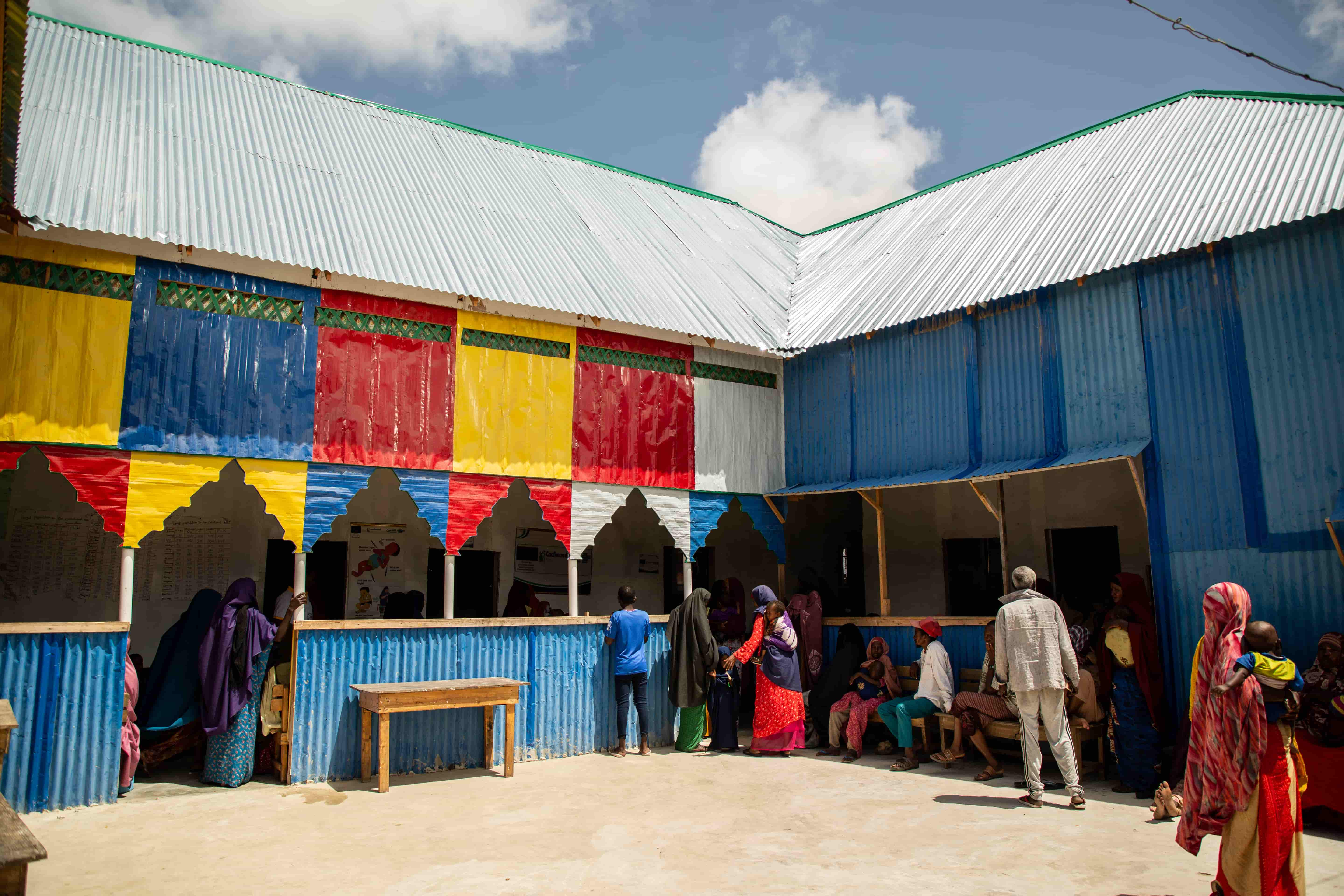
Literature Review
A comprehensive desk review of current literature, key debates, and trends relating to localization of humanitarian response.
